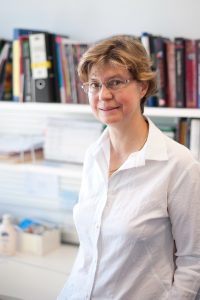
Jane Visvader
The Walter and Eliza Hall Institute of Medical Research
Australia
(Virtual Speaker)
EMBO Practical Course
Please see EMBL’s COVID-19 safety policy for testing and other requirements to attend this on-site course.
The mammary epithelium is a unique organ in that the majority of its development occurs postnatally. This, combined with ease of experimental access and a stereotypical growth pattern, make it an ideal tissue for studying cellular homeostasis, branching morphogenesis, hormonal effects, stem cell biology and breast cancer. This theoretical and practical course will present techniques for the dissection and dissociation of different subpopulations of both mouse and human mammary cells, including stem/progenitor cells. It will also include flow cytometry to separate single cell populations for the consequent in vitro (mammosphere and 3D cultures) and in vivo (mouse mammary fat-pad clearing and cell transplantation) analysis to assess stem cell activity and gene function.
This course targets PhD students, post-docs and other scientists entering the field of mammary gland biology and breast cancer or those who wish to complement their knowledge using mouse or human methods.
The participants will learn about the complete workflow for mammary gland studies and gain an understanding about possibilities and limitations of working with mouse and human systems.
Bordeaux Institute of Oncology
France
EMBL Heidelberg and MOLIT Institute
Germany
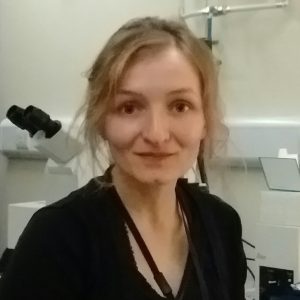
University of Bristol
UK
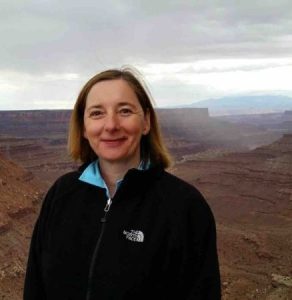
Luxendo, Bruker Fluorescence Microscopy
Germany
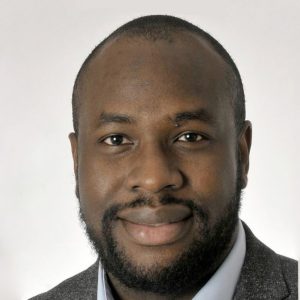
MOLIT Institute
Germany
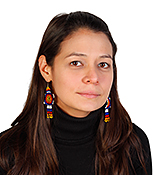
EMBL Heidelberg
Germany
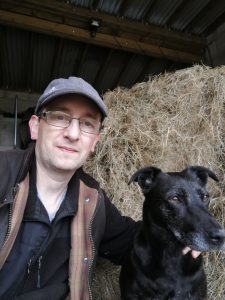
Cardiff University
UK
(Virtual Speaker)
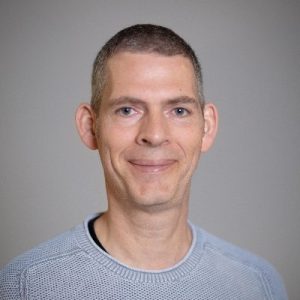
EMBL Heidelberg
Germany
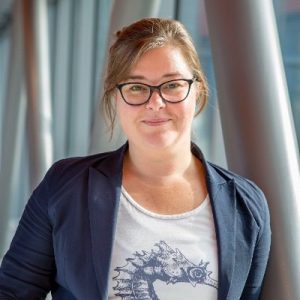
University of Amsterdam
The Netherlands
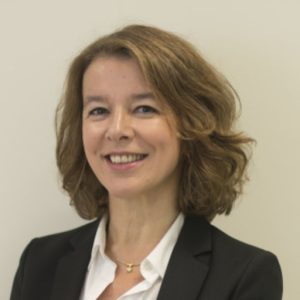
CIC bioGUNE – Center for Cooperative Research in Biosciences
Spain
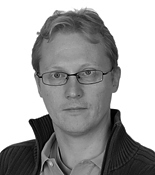
Luxendo, Bruker Fluorescence Microscopy
Germany
EMBL Heidelberg and MOLIT Institute
Germany

University of Amsterdam
The Netherlands

CIC bioGUNE – Center for Cooperative Research in Biosciences
Spain
Course and Conference Officer
EMBL Heidelberg
Germany
Head of Laboratory Animal Resources
EMBL Heidelberg
Germany

Training Lab Technician
EMBL Heidelberg
Germany
Got something to say? Tweet it! #EMBOMammaryGland
| Time (Europe/Berlin) | Session and speakers | Location |
|---|---|---|
| 15:30 – 16:00 | Registration | ISG Hotel |
| 16:00 – 16:15 | Welcome and house notes EMBL Course and Conference Office Team | ISG Hotel |
| 16:15 – 17:00 | Course Overview María dM Vivanco – CIC bioGUNE, Spain Renée van Amerongen – University of Amsterdam, The Netherlands Martin Jechlinger – EMBL Heidelberg and MOLIT Institute, Germany | ISG Hotel |
| 17:00 – 19:30 | Presentations Short talks by participants (4 mins each) | ISG Hotel |
| 19:30 – 20:30 | Dinner | ISG Hotel restaurant |
| 20:30 – 21:00 | Networking and drinks | ISG Hotel restaurant |
| Time (Europe/Berlin) | Session and speakers | Location |
|---|---|---|
| 08:40 | Bus departure from ISG Hotel to EMBL Heidelberg | ISG Hotel entrance |
| 09:00 – 09:10 | Overview of the day María dM Vivanco – CIC bioGUNE, Spain Renée van Amerongen – University of Amsterdam, The Netherlands Martin Jechlinger – EMBL Heidelberg and MOLIT Institute, Germany | Courtyard Room A & B |
| 09:10 – 09:20 | Introduction to lab safety EMBL Course and Conference Office Team | Courtyard Room A & B |
| 09:20 – 10:00 | Lecture 1: Introduction to mouse mammary gland techniques Renée van Amerongen – University of Amsterdam, The Netherlands | Courtyard Room A & B |
| 10:00 – 10:40 | Lecture 2: Introduction to human mammary gland María dM Vivanco – CIC bioGUNE, Spain | Courtyard Room A & B |
| 10:40 – 12:40 | Practical session 1: Demo mammary fat pad clearing Richard Iggo – Bordeaux Institute of Oncology, France Renée van Amerongen – University of Amsterdam, The Netherlands Martin Jechlinger – EMBL Heidelberg and MOLIT Institute, Germany | Training Lab A & B |
| 12:40 – 13:40 | Lunch | EMBL Canteen |
| 13:40 – 14:25 | Lecture 3: FACS introduction María dM Vivanco – CIC bioGUNE, Spain Renée van Amerongen – University of Amsterdam, The Netherlands | Courtyard Room A & B |
| 14:25 – 15:55 | Practical Session 2: Mammary gland harvest for Carmine stain and overnight digestion for FACS & 3D culture Richard Iggo – Bordeaux Institute of Oncology, France Renée van Amerongen – University of Amsterdam, The Netherlands Martin Jechlinger – EMBL Heidelberg and MOLIT Institute, Germany | Training Lab A & B |
| 15:55 – 16:10 | Coffee break | Courtyard Room A & B |
| 16:10 – 17:40 | Practical Session 2: Mammary gland harvest for Carmine stain and overnight digestion (continuation) Richard Iggo – Bordeaux Institute of Oncology, France Renée van Amerongen – University of Amsterdam, The Netherlands Martin Jechlinger – EMBL Heidelberg and MOLIT Institute, Germany | Training Lab A & B |
| 17:40 – 18:10 | Practical discussion with discussion leader Richard Iggo – Bordeaux Institute of Oncology, France Renée van Amerongen – University of Amsterdam, The Netherlands | Courtyard Room A & B |
| 18:10 – 19:10 | Organisation of the grant writing exercise María dM Vivanco – CIC bioGUNE, Spain Renée van Amerongen – University of Amsterdam, The Netherlands Martin Jechlinger – EMBL Heidelberg and MOLIT Institute, Germany | Courtyard Room A & B |
| 19:10 – 20:10 | Dinner | EMBL ATC Rooftop Lounge |
| 20:10 – 22:10 | Poster session 1 (odd numbers) | Helix B near the EMBL ATC Rooftop Lounge |
| 22:15 | Bus departure from EMBL Heidelberg to ISG Hotel | EMBL ATC Entrance |
| Time (Europe/Berlin) | Session and speakers | Location |
|---|---|---|
| 08:40 | Bus departure from ISG Hotel to EMBL Heidelberg | ISG Hotel |
| 09:00 – 09:10 | Overview of the day María dM Vivanco – CIC bioGUNE, Spain Renée van Amerongen – University of Amsterdam, The Netherlands Martin Jechlinger – EMBL Heidelberg and MOLIT Institute, Germany | Courtyard Room A & B |
| 09:10 – 10:25 | Virtual Lecture 4: Keynote lecture on Stem cells, mammary gland development and breast cancer Jane Visvader (VIRTUAL SPEAKER) – The Walter and Eliza Hall Institute of Medical Research, Australia | Courtyard Room A & B |
| 10:25 – 12:10 | Practical session 3: Digest organoids to single cells and seeding on 2D Philip Mbonu – MOLIT Institute, Germany María dM Vivanco – CIC bioGUNE, Spain Renée van Amerongen – University of Amsterdam, The Netherlands Martin Jechlinger – EMBL Heidelberg and MOLIT Institute, Germany | Training Lab A & B |
| 12:10 – 13:10 | Lunch | EMBL Canteen |
| 13:10 – 13:55 | Lecture 5: FACS analysis for practicals María dM Vivanco – CIC bioGUNE, Spain | Courtyard Room A & B |
| 13:55 – 15:55 | Practical session 4: Mouse stain for FACS Martin Jechlinger – EMBL Heidelberg and MOLIT Institute, Germany Diana Ordonez – EMBL Heidelberg, Germany Practical Session 5: Human staining for ALDH and FACS María dM Vivanco – CIC bioGUNE, Spain Renée van Amerongen – University of Amsterdam, The Netherlands | Training Lab A & B |
| 15:55 – 16:05 | Coffee break | Courtyard Room A & B |
| 16:05 – 18:05 | Practical session 4: Mouse stain for FACS (continued) Martin Jechlinger – EMBL Heidelberg and MOLIT Institute, Germany Diana Ordonez – EMBL Heidelberg, Germany Practical session 5: Human staining for ALDH and FACS (continued) María dM Vivanco – CIC bioGUNE, Spain Renée van Amerongen – University of Amsterdam, The Netherlands | Training Lab A & B |
| 18:05 – 19:05 | Lecture 6: MIND intro Richard Iggo – Bordeaux Institute of Oncology, France | Courtyard Room A & B |
| 19:05 – 19:35 | Practical discussion with discussion leader Martin Jechlinger – EMBL Heidelberg and MOLIT Institute, Germany María dM Vivanco – CIC bioGUNE, Spain Renée van Amerongen – University of Amsterdam, The Netherlands | Courtyard Room A & B |
| 19:35 – 20:35 | Dinner | EMBL Canteen |
| 20:45 | Bus departure from EMBL Heidelberg to ISG Hotel | EMBL ATC Entrance |
| Time (Europe/Berlin) | Session and speakers | Location |
|---|---|---|
| 08:40 | Bus departure from ISG Hotel to EMBL Heidelberg | ISG Hotel |
| 09:00 – 09:10 | Overview of the day María dM Vivanco – CIC bioGUNE, Spain Renée van Amerongen – University of Amsterdam, The Netherlands Martin Jechlinger – EMBL Heidelberg and MOLIT Institute, Germany | Courtyard Room A & B |
| 09:10 – 11:10 | Practical session 6: Seeding 3D cultures Philip Mbonu – MOLIT Institute, Germany María dM Vivanco – CIC bioGUNE, Spain Renée van Amerongen – University of Amsterdam, The Netherlands Martin Jechlinger – EMBL Heidelberg and MOLIT Institute, Germany Practical session 7: MIND practicals and Mammary gland Carmine processing Richard Iggo – Bordeaux Institute of Oncology, France Renée van Amerongen – University of Amsterdam, The Netherlands Martin Jechlinger – EMBL Heidelberg and MOLIT Institute, Germany | Training Lab A & B |
| 11:10 – 11:20 | Group photo | Meet at Courtyard Room A & B |
| 11:20 – 13:20 | Practical session 6: Seeding 3D cultures (continued) Philip Mbonu – MOLIT Institute, Germany María dM Vivanco – CIC bioGUNE, Spain Renée van Amerongen – University of Amsterdam, The Netherlands Martin Jechlinger – EMBL Heidelberg and MOLIT Institute, Germany Practical session 7: MIND practicals and Mammary gland Carmine processing (continued) Richard Iggo – Bordeaux Institute of Oncology, France Renée van Amerongen – University of Amsterdam, The Netherlands Martin Jechlinger – EMBL Heidelberg and MOLIT Institute, Germany | Training Lab A & B |
| 13:20 – 14:20 | Lunch | EMBL Canteen |
| 14:20 – 14:50 | Lecture 7: 3D cultures Martin Jechlinger – EMBL Heidelberg and MOLIT Institute, Germany | Courtyard Room A & B |
| 14:50 – 15:20 | Lecture 8: Mammosphere cultures María dM Vivanco – CIC bioGUNE, Spain | Courtyard Room A & B |
| 15:20 – 15:50 | Coffee break | Courtyard Room A & B |
| 15:50 – 16:20 | Practical discussion with discussion leaders Richard Iggo – Bordeaux Institute of Oncology, France Renée van Amerongen – University of Amsterdam, The Netherlands Martin Jechlinger – EMBL Heidelberg and MOLIT Institute, Germany | Training Lab A & B |
| 16:20 – 17:20 | Group activity: Group work on grant writing | Courtyard Room A & B |
| 17:20 – 19:20 | Poster session 2 (even numbers) | Helix B near the EMBL ATC Rooftop Lounge |
| 19:20 – 20:20 | Dinner | EMBL Canteen |
| 20:35 | Bus departure from EMBL Heidelberg to ISG Hotel | ATC Entrance |
| Time (Europe/Berlin) | Session and speakers | Location |
|---|---|---|
| 08:40 | Bus departure from ISG Hotel to EMBL Heidelberg | ISG Hotel entrance |
| 09:10 – 09:55 | Lecture 9: Lecture on tumour histology Matt Smalley (VIRTUAL SPEAKER) – Cardiff University, UK | Courtyard Room A & B |
| 09:55 – 11:25 | Practical session 8: Mounting Carmine / Analysing group work on grant writing Renée van Amerongen – University of Amsterdam, The Netherlands Martin Jechlinger – EMBL Heidelberg and MOLIT Institute, Germany | Training Lab A & B |
| 11:25 – 12:10 | Lecture 10: Imaging Bethan Lloyd-Lewis – University of Bristol, UK | Courtyard Room A & B |
| 12:10 – 12:40 | Lecture 11: Microscopy Stefan Terjung – EMBL Heidelberg, Germany | Courtyard Room A & B |
| 12:40 – 13:10 | Lunch | Courtyard Room A & B |
| 13:10 – 13:40 | Lecture 12: SPIM imaging Malte Wachsmuth – Bruker and Luxendo, Germany | Courtyard Room A & B |
| 13:40 – 17:10 | Practical Session 9: SPIM Malte Wachsmuth – Bruker and Luxendo, Germany Martin Jechlinger – EMBL Heidelberg and MOLIT Institute, Germany Practical Session 10: Continuation analysis and discussion María dM Vivanco – CIC bioGUNE, Spain Richard Iggo – Bordeaux Institute of Oncology, France Group activity: Group work on grant writing ALMF facility tour | Training Lab A & B |
| 13:40 – 17:10 | Coffee break available throughout rotations | Courtyard Room A & B |
| 13:40 – 17:10 | Rotations continued. Practical Session 9: SPIM Malte Wachsmuth – Bruker and Luxendo, Germany Martin Jechlinger – EMBL Heidelberg and MOLIT Institute, Germany Practical Session 10: Continuation analysis and discussion María dM Vivanco – CIC bioGUNE, Spain Richard Iggo – Bordeaux Institute of Oncology, France Group activity: Group work on grant writing ALMF facility tour | Training Lab A & B |
| 17:10 – 18:50 | Presentation of the group projects | Courtyard Room A & B |
| 18:55 – 19:05 | Bus departure from EMBL Heidelberg to ISG Hotel | EMBL ATC Entrance |
| 19:05 – 19:20 | Time at ISG Hotel to drop personal items/change | ISG Hotel |
| 19:20 | Bus to city centre | ISG Hotel entrance |
| 19:45 | Final course dinner | Oskar restaurant |
| Taxis back to the ISG hotel after dinner | City centre |
| Time (Europe/Berlin) | Session and speakers | Location |
|---|---|---|
| 08:40 | Bus from hotel to EMBL ATC Entrance | ISG Hotel |
| 09:00 – 09:10 | Overview of the day María dM Vivanco – CIC bioGUNE, Spain Renée van Amerongen – University of Amsterdam, The Netherlands Martin Jechlinger – EMBL Heidelberg and MOLIT Institute, Germany | Courtyard Room A & B |
| 09:10 – 10:40 | Practical Session 11: Analyzing and photographing 3D cultures, wrap up carmine staining analysis if needed María dM Vivanco – CIC bioGUNE, Spain Renée van Amerongen – University of Amsterdam, The Netherlands Martin Jechlinger – EMBL Heidelberg and MOLIT Institute, Germany Richard Iggo – Bordeaux Institute of Oncology, France | Training Lab A & B |
| 10:40 – 11:10 | Group activity: Results of grant writing projects | Courtyard Room A & B |
| 11:10 – 12:10 | Final panel discussion: Analysis, troubleshooting for projects with trainers, wrap up | Courtyard Room A & B |
| 12:10 – 13:10 | Lunch | EMBL Canteen |
| 13:30 – 14:00 | Bus departure to Heidelberg main train station & city centre | EMBL ATC Entrance |
The course is limited to 20 participants. For selection purposes, please note that your application will not be considered without a letter of motivation.
Registration fees include admission, course materials, COVID-19 safety measures, meals and coffee breaks. This EMBO course includes accommodation and transportation to and from the ISG Hotel to the venue.
| Academia | €500 |
| PhD Student | €500 |
| Industry | €1000 |
NO visa support letters will be issued until payment of the registration fee is confirmed.
The registration fee should be paid only after acceptance to the course. The results will be announced approximately 2-3 weeks after the application deadline.
After you have logged in and successfully registered, you will receive an email asking you to submit your motivation letter. Click on the link provided and enter your motivation letter in the text box provided. Alternatively you can submit your motivation letter by clicking on the link on the confirmation page directly after registering.
Instructions
Please note:
For detailed instructions, please watch our video on how to submit a course motivation letter.
For further information about registration and motivation letter submission please refer to the FAQ page.
Limited financial assistance is provided by the EMBL Advanced Training Centre Corporate Partnership Programme and EMBO in the form of both registration fee waivers and travel grants. Availability is limited to participants attending on-site EMBL Courses and virtual or on-site EMBO Practical Courses in Heidelberg, and will be indicated during the motivation letter submission process.
Your place in the course is only confirmed by paying the registration fee, which is mandatory even when receiving a fee waiver.
The fee waiver will cover the registration sum that you have paid to attend the course.
The travel grant will cover the cost of travel (airfare, train, bus, taxi, accommodation, visa, and/or registration fees*) and is provided up to specified caps which are normally as follows:
– up to €400 for participants travelling to an EMBL Course within Europe.
– up to €1000 for participants travelling to an EMBL Course from outside Europe.
– up to €500 for any participant travelling to an EMBO Practical Course.
– up to €1000 for any participant working in Chile, India, Singapore or Taiwan travelling to an EMBO Practical Course.
– up to €700 for any participant working in Croatia, Czech Republic, Estonia, Greece, Hungary, Italy, Lithuania, Luxembourg, Poland, Slovenia, and Turkey travelling to an EMBO Practical Course.
*Registration fees are only covered for EMBO Practical Courses
The organisers may reduce the grant cap to accommodate more participants. Recipients will be notified of their travel cap amount when they are informed of the outcome of their application. Original receipts must be provided with your signature for all costs incurred within two months of completion of travel. Scanned copies cannot be accepted.
For EMBO Practical Course participants with children, there is the possibility to apply for a childcare grant to offset child care costs incurred by participants or speakers when participating at a course. Eligible costs include fees for a babysitter or child-care facility, travel costs for a caregiver, or travel costs for taking the child to the meeting etc. Please note that priority will be given to early-stage researchers. A maximum amount of €500 can be awarded per participant applying for an EMBO childcare grant.
Applies to selected courses only. Availability will be indicated during the motivation letter submission process.
This grant covers costs related to your attendance at the course (registration, travel and accommodation costs). The grant is restricted to PhD students and postdocs who conduct basic biomedical research.
Whether you are eligible to apply for a travel grant, depends on when you received your university entrance qualification (e.g. Abitur, A-Levels, High School Diploma, Final State Examination):
– for PhD and MD students, as well as graduates, the university entrance qualification must not have been obtained more than 11 years ago at the time of the envisaged course
– for postdocs, the university entrance qualification must not have been obtained more than 13 years ago at the time of the envisaged course
You may apply for financial assistance when submitting your motivation letter for courses. In your application, you will be asked to answer questions regarding why your lab cannot fund your attendance and how your attendance will make a difference to your career. Application for financial support will not affect the outcome of your registration application.
For the Boehringer Ingelheim Fonds Travel Grant, there is a pre-application question during the motivation letter submission process, and if selected you will be requested to complete a standard form and documentation consisting of your travel expense estimation.
The scientific organisers will select the recipients of all financial assistance during the motivation letter selection process. Results will be announced approximately 6-8 weeks before the event start date, however for some events this may be delayed. Selection results do not impact your admission to the course. Selection is based on scientific merit, your current work or study location, the reasons for needing financial support, and the impact this event will have on your career.
Costs will be reimbursed after the meeting only once a reimbursement form and original receipts (from travel costs) have been received.
See our list of external funding opportunities and for further information about financial assistance please refer to the FAQ page.
The registration fee includes accommodation for 5 nights (checking in 5 March 2023, checking out 10 March 2023) at the ISG Hotel in a single room, including breakfast. Any additional nights need to be booked and paid for by you to the hotel. We recommend that all course participants stay at the ISG Hotel, which is the dedicated hotel for the course.
Shuttle buses will go from the ISG Hotel to EMBL and back, mornings and evenings. A bus schedule and location of the bus stops will be made available prior to the meeting.
Address: EMBL Heidelberg, Meyerhofstraße 1, 69117 Heidelberg, Germany
For further information on getting to EMBL Heidelberg visit our Travel Information page.
For enquiries about accommodation and local transportation please refer to the FAQ page.
The EMBL eCampus learning platform will be used to collaborate, communicate and network with all of the course participants. All participants will receive information on how to join shortly before the course. We recommend using Chrome, Safari or Mozilla Firefox browsers for eCampus.
Please find additional information including FAQs, terms and conditions, COVID-19 safety policy and travelling to EMBL on our Information for Participants page.
COVID-19 information for on-site events at EMBL Heidelberg can be found in our COVID-19 FAQs.
Event supporter:
Sponsorship opportunities
We offer a variety of event sponsoring possibilities, with the flexibility to select a set sponsorship package or combine individual sponsorship options to suit your event budget. Discounts are available for companies sponsoring multiple events at EMBL Heidelberg. View other events, or contact sponsorship@embl.de for further information.
If you are interested in becoming a media partner of this event, please visit our media partnerships webpage.
EMBL wishes to warn sponsors of EMBL conferences and courses of fraudulent schemes purporting to offer sponsorship opportunities on behalf of EMBL or affiliated with EMBL officials. One current scam campaign of which we are aware is conducted using the name ‘Judy Eastman’ (judy@gopcontact.a2hosted.com) and entails approaches to sponsors offering sponsorship opportunities on EMBL’s behalf. Please be kindly advised that all relevant communication regarding sponsorship of EMBL conferences, symposia and courses is handled by EMBL directly and is sent from an official EMBL account. EMBL does not work with any external providers on sponsorship acquisition.
Please also note that:
Suspicious communications purportedly from, for or on behalf of EMBL should be reported to EMBL at the following email address sponsorship@embl.de.
Want to let others know you’re attending this event? Take a look at our shareable media and feel free to use them in your social media channels or presentations.

Date: 5 - 10 Mar 2023
Location: EMBL Heidelberg
Venue: EMBL Advanced Training Centre
Deadline(s):
Application: Closed
Organisers:
Contact: Charlotte Courtney